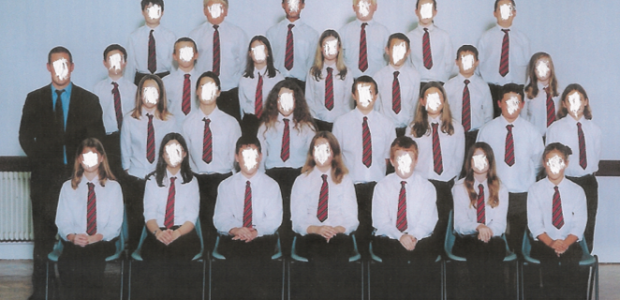Prosopagnosia (“Face Blindness”) in Autism
There is another condition that, though not specific to autism, appears to be quite common in autistic population. This neurological disorder is called prosopagnosia, or face blindness. People suffering from this condition have trouble recognizing people’s faces. Prosopagnosia makes them blind to all but the most familiar faces. It may be genetic and runs in families, or may be caused by strokes, head injuries, or severe illnesses. The exact effects and severity may vary between people.
Face blindness may co-occur with autistic spectrum disorders. Hans Asperger reported the example of an astronomer with Asperger syndrome who could not recognize his friends and relatives. Temple Grandin, a high-functioning woman with autism, often got into embarrassing situations because she did not remember faces unless she had seen the people many times or they had a very distinct facial feature, such as a big beard, thick glasses or a strange hairstyle.
Some researchers even suggest that prosopagnosia may be an essential symptom in autistic spectrum disorder, perhaps a specific subgroup of Asperger syndrome.
Some experimental studies of autistic people’s capacity to process faces suggest that they use abnormal processing strategies and experience less difficulties when faces are presented to them upside-down. Whether it is true for their perception of the whole environment needs further investigation.
Non-autistic prosopagnostics state that face blindness tends to isolate them from people in general, as being unable to recognize others interferes with making and maintaining relationships. They work out their own recognition system. Most common features that seem to work best for face blind people are casual clothes, movement, long hair and facial hair (as the inability to recognize faces does not extend to hair, particularly if it is long enough to extend out of the face area). They can see a pattern in hair texture and process hairlines. Interestingly, that many autistic children are fascinated by people’s hair, and many do not recognize their relatives if they wear unfamiliar clothes.
A prosopagnostic autistic boy, despite knowing the names of his classmates, often calls them ‘a boy’ or ‘a girl’. Interestingly, when one of the girls had her hair cut short, he ‘moved’ her to the ‘boy’ category.
Another problem prosopagnostic people experience is the difficulty to understand and express emotions. The main ‘tools’ to express emotions are not words but facial expressions, gestures and tone of voice. For people who cannot ‘read’ faces because of face blindness or/and cannot ‘hear’ emotions in voices because of their auditory processing problems, it is extremely difficult not only to understand emotions in others but also to express emotions themselves otherwise than using words. It’s sort of ‘emotion blindness’. There is a striking similarity of emotional expressions of blind people and individuals with prosopagnosia: not seeing what emotions are supposed to look like when coming in, both the blind and prosopagnostics have never acquired a large repertoire of emotions to send out. It is no wonder, therefore, that autistic people experiencing all sorts of sensory processing problems find it most difficult to understand emotional states of other people and those of their own.
In addition to their difficulties in ‘reading’ facial expressions, some prosopagnostic people have problems with understanding gestures and sign language, which involves a lot of facial expressions.
Written by Olga Bogdashina on behalf of Integrated Treatment Services.










